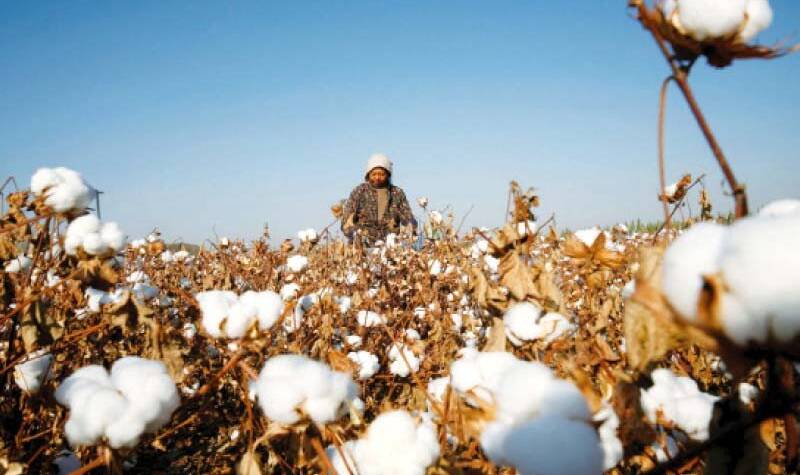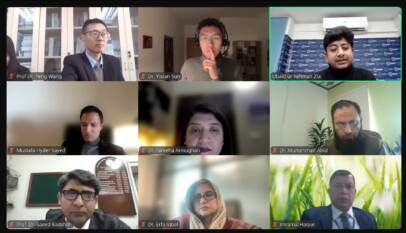Pakistan, China join hands to produce quality research on cotton industry
While addressing an International Training Workshop titled ‘Climate Smart Water Fertiliser Intelligent System for Cotton and Wheat’, organized by the University of Agriculture Multan, Chinese Academy of Agricultural Sciences Biotechnology Research Institute’s PhD supervisor Zhang Rui said that the National Natural Science Foundation of China (NSDC) and Pakistan Science Foundation (PSF) are working together to establish a model through the study of the changes in climate characteristics and the corresponding changes in cotton and wheat production varieties, and to put forward breeding suggestions for climate change for the next 30-50 years.
BEIJING: As global climate change is intensifying, the National Natural Science Foundation of China (NSDC) and Pakistan Science Foundation (PSF) are working together to establish a model through the study of the changes in climate characteristics and the corresponding changes in cotton and wheat production varieties, and to put forward breeding suggestions for climate change for the next 30-50 years. This message was conveyed by Chinese Academy of Agricultural Sciences Biotechnology Research Institute’s PhD supervisor Zhang Rui on the International Training Workshop titled ‘Climate Smart Water Fertiliser Intelligent System for Cotton and Wheat’ on Thursday. The seminar was organised by the University of Agriculture, Multan. The model is developed under the APSIM (Agricultural Production Systems Simulator) intelligent regulation and decision-making system, which can simulate the biophysical process in farming system, describe crop structure, crop sequence, yield prediction, quality control and erosion estimation under different planting pattern. It can also predict the future design direction of wheat and cotton varieties and water, fertiliser and salt management measures. “Compared with traditional breeding, the use of genetic engineering methods can produce crop varieties that adapt to different types of environmental conditions more quickly,” she said. Pakistan ranks fifth in cotton production among 60 major cotton-producing countries of the world and occupies the third position in consumption. The cotton industry of Pakistan, with the longest value chain system in the country, has 60% share in foreign exchange earnings and engages 38% of labour force directly or indirectly. But there is a gap of about 5-6 million bales between production and consumption of local cotton industry, informed CRI, Multan Chief Scientist Dr Saghir Ahmad.
Experts highlight green SEZs under CPEC for sustainable development
ISLAMABAD – The experts on Monday emphasised the significance of enhanced collabor…












